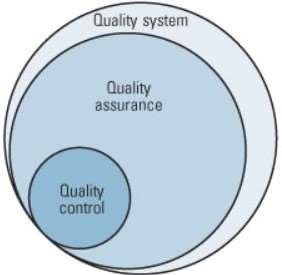
Cannabis business regulations are a moving target that continuously puts those in this industry at a disadvantage. The risk of not continually being compliant with state and federal rules and regulations can be incredibly dangerous. There are several ways to keep up with current regulations to ensure you are always staying compliant. From knowing where to stay up to date on your state’s regulations, creating solid SOPs at the foundation of your business or taking proper steps to avoid a product recall. These are only a few ways to be up to date on cannabis business regulations.
The cannabis industry has been through the wringer more than once. And will continue to be until federal legalization has been established for quite some time. While the de-stigmatization of marijuana is generally on the up and up; continuing to be in line with business regulations for this industry establishes your brand as trustworthy and legitimate. A fair amount of cannabis business regulation topics are simply keeping up with your local laws.
The flip side of the coin is to create a flawless execution of daily operations. This includes having the proper literature and backup plans in place in preparation for whatever comes your way. Whether it be solid SOPs or having a procedure in place in the event of a product recall. Putting in the time and work at the foundational level allows for the peace of mind that your business is on par with current regulations.
Current Cannabis Business Regulations
As most readers here are aware, the current state of regulations on the federal level is uneven. If you are unsure or unaware of what your state’s current regulations are check here. Make sure to cross-reference and continually check in with regulations. New trends and cannabinoids are continually popping up (Delta-8, HHC, etc.). So understanding where the products you sell fall on the scale within your state and even city is imperative. States are scrambling to keep up with the innovation of the industry and several bills have been put into motion. Yet none so far have been able to follow through.
For example, the SAFE banking act, which passed the house as of September 23, 2021. The SAFE Act bill“…generally prohibits a federal banking regulator from penalizing a depository institution for providing banking services to a legitimate cannabis-related business”. The act has gone through the house many a time only to falter in the Senate. All eyes will be on the Senate to see if this act can finally become a law.
Another bill at the federal level is the MORE Act or the Marijuana Opportunity, Reinvestment, and Expungement Act. Which aims to end the criminalization of cannabis for adults by removing it from the Schedule 1 drug list. Aka The Controlled Substances Act which eliminates criminal-related penalties. However, many are generally worried about the high federal excise tax placed on cannabis. Stating that the high tax regulation on cannabis would lead big pharma to monopolize the substance. Pushing many back to selling and buying on the black market. Doing the exact opposite of what the bill is being advertised as accomplishing and possibly pushing the industry back years.
Being Non-Compliant means risking….
Having proactive compliance management is one of the absolute best ways to stay within code and ensure the longevity of your cannabis business. Consistent compliance in all aspects of your business means reducing the possibility of fines, recalls, and demolition of your products. Putting in an extreme amount of hard work, time, and energy to only see it being thrown away because you aren’t compliant can be devasting to any small business owner. When you aren’t compliant you risk detrimental long-term impacts on your business. Not to mention your employees, and yourself. Which can be incredibly costly to your bank account and brand.
Fines can be issued into the millions for not being within regulation for your facility and products. And the risk of providing consumers with dangerous products could lead to costly lawsuits. Since the cannabis industry is still so new, word of mouth and fellow associates discussing your brand and products can make or break your success. Have a plan ready in the event of getting fined. Getting ahead of it is always your best option as a cannabis business owner. To understand further risks of being non-compliant check out this article written by one of our founders Kim Stuck, with Allay Consulting.
Create critical SOPs for cannabis manufacturing procedures
One of the best ways to avoid the events that happen above is to write solid SOPs for your business operations. You know when you were a kid and had an assignment to write the directions to make a PB&J. Then it turned out to be way harder than you thought. This is what that assignment was preparing you for as a “grown-up”.
Here is how to write the most essential SOPs for your manufacturing procedures. When writing an SOP you need to ensure that all steps meet the current compliance standards. Make sure to make a list of every standard that needs to be met. Especially concerning safety (OSHA), production requirements, training, etc. Define what the goal of the SOP is, with the end product in mind. Walkthrough every single step and process and put pen to paper making sure you have everything down. Decide the format you want and the best way to convey your information with ease of understanding and access. The more comprehensive it is while being quick and easy means you’ve hit a home run. Ask for input and have others walk through it as well. There could be something essential you might have missed.
SOPs are important because the continual quality of your product and brand trustworthiness is ingrained in your business. SOPs avoid the issue of an auditor coming in if anything unfortunate happens. Then not being able to provide any information. They help investigators understand what steps are being taken to have good business practices all around. Documentation is fundamental in the cannabis industry to ensure your product is compliant along the supply chain. If you are hit with a claim or fine you have all the proper proof of what is going on in your facility.
Keys to a Cannabis quality assurance
Quality control is one of the best ways to make sure you are continually going to succeed in the cannabis market. The key to cannabis quality assurance is having a strong foundation that fosters an understanding in employees and the brand along with high-quality products. Regardless of when or where your product is on the cannabis supply chain; we need to continue to encourage quality assurance in every single cannabis touching business.
With many a series of unfortunate events continuously plaguing the media about cannabis. Each “bathtub gin” making of products that lack regulation and hurt our children only adds to the stigma tied to marijuana. Cannabis business regulations are consistently moving and business owners are trying to stay compliant in the industry. Many understand and know the struggle that many business owners face while also working hard to maintain a high-quality product. The public sees many trying to get rich quick on a plant that many see as a gateway drug. Knowing the important steps to create even the most basic level of quality assurance within your facility shows to the public you are working hard to have business in good faith.
Most important product safety regulations
Along with constantly changing and updated rules that are not always announced; cannabis safety regulations are different from other industries because of the difference in state and federal regulations. Knowing where your product lies on the legality spectrum is essential to stay in business and in good standing. Here are some of the most important product safety regulations currently, keep in mind that these are not static!
While the MORE Act has been introduced into the house. Marijuana still currently is on the Controlled Substances list making it a schedule 1 drug. Schedule 1 drug is defined as a substance with no medical value and a high potential for abuse. Schedule 2–5 drugs are seen as having some medical value but slide along the scale for level of potential abuse. Just for reference cocaine and meth are schedule 2 drugs. Meaning there is some level of medicinal value seen in meth and cocaine but not marijuana… Those even remotely involved in the industry know this isn’t true, and while the MORE Act and other legislative initiatives are working hard to change this. The biggest flaw seen in the scheduling hierarchy is the underlying racial prejudices and influences of drug scheduling.
While on a federal level this is the biggest regulation to know for your cannabis business. The state-level laws are what truly define your business plan. The main difference is the allowance of medical vs. recreational marijuana in your state. You need a medical card to purchase marijuana in medical-only states, while in recreational states you need to simply be of age. The ease of obtaining a medical card can be relatively low depending on the state. Impacting your customer size depending on the state you are selling in. Along with these constantly changing regulations, keeping up with multiple different information sources ensure that you are always staying within current product safety regulations.
NCIA or National Cannabis Industry Association is a great resource for current federal and state regulations. They are working continuously on capitol hill to update and advocate for the cannabis industry. Hoping to ensure it succeeds and is safe for all consumers in the United States. They also have a state-by-state updated map to let you know the regulations and stats of your particular state. Check it out here so you know exactly what’s going on at your home base.
White labeling partner, FDA, claims + descriptions
One of the biggest sectors where the cannabis industry gets into hot water is the inaccuracy of labeling and claims made about products. Here are some of the guidelines we encourage you to follow when marketing your product:
Never ever make medical claims. Making medical claims that are not backed up by substantial research is a recipe for disaster or fines being issued. Connecting yourself to any reviews that make medical claims will also put you in hot water. Confirming or even liking a post or review that claims to “cured my covid” for example will automatically have you on the radar of the FDA and FTC for making false claims. (ESPECIALLY WITH COVID)
Utilizing influencers can also be a less expensive option for marketing and we all know the power of social media these days. However, make sure to go over with your influencer exactly what they can and cannot say. Along with how they are representing, not only your product but your brand. Don’t let them roam free or go off-script. The FDA and FTC now have the ease of technology and time to simply go over your website looking for extravagant claims or connections to your product that could be seen as false advertising. With the new trend of different cannabinoids being synthetically altered and changed depending on the legality of the cannabis laws in a state; this new trend is leading to a very dangerous, scary territory.
If you’re looking for more tips and tricks about labeling and marketing claims check out some of our other panel discussions from our founders on these topics.
What to Consider When Choosing a White-Labeling Partner
Claims and Descriptions: A Legal Opinion of What You Can and Cannot Say
FDA Compliance and Federal Enforcement
The Regulators You Should Know About
Conclusion
Continually being up to date with cannabis business regulations is one more thing added to the laundry list of responsibilities cannabis business owners must deal with. We hope this article helped you understand some of the basic and simple steps to be aware of in creating a solid foundation for your business to succeed. Writing solid SOP’s, taking the proper steps to avoid a recall, and implementing quality assurance all help in avoiding the risks of being non-compliant and getting your business shut down. Establishing your business and your brand as one to be trusted with high quality is one of the best ways to continue the federal legalization of cannabis. The industry is only as strong as our weakest link. Creating businesses that are compliant and safe means a brighter future for us all.
Works Cited
Bucki, J. (2020, July 02). What Is Quality Assurance? Retrieved from https://www.thebalancesmb.com/definition-of-quality-assurance-2533665
Gillis, A. S. (2019, July 22). What is Quality Assurance? – Definition from WhatIs.com. Retrieved from https://searchsoftwarequality.techtarget.com/definition/quality-assurance
L. (2019, April 29). How to Write a Standard Operating Procedure: More Than a Simple Process. Retrieved from https://www.lucidchart.com/blog/how-to-write-a-standard-operating-procedure
Project, M. P. (n.d.). The MORE Act. Retrieved from https://www.mpp.org/policy/federal/the-more-act/
Quality ASSURANCE & Quality control. (n.d.). Retrieved from https://asq.org/quality-resources/quality-assurance-vs-control
State By State Policies: National Cannabis Industry Association. (n.d.). Retrieved from https://thecannabisindustry.org/ncia-news-resources/state-by-state-policies/
B. (2021, September 28). U.S. House Passes the SAFE Banking Act as Part of Defense Bill. Retrieved from https://www.natlawreview.com/article/us-house-passes-safe-banking-act-part-defense-bill

Teagan is the Marketing & Communications Manager for 710Spirits® and Rocky Mountain Reagents. While continually learning about the cannabis industry and all the possibilities it has to offer she creates content for The Canna Consortium both for blog posts and social media. Make sure to check out @thecannaconsortium2.0 for all industry updates and news.

